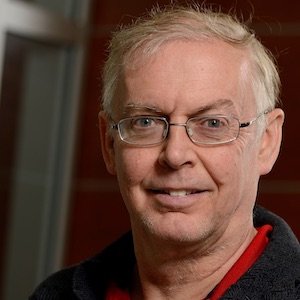 Approximate Analysis by Synthesis: Towards a Computational Theory of Vision
Approximate Analysis by Synthesis: Towards a Computational Theory of Vision
29 June 2023 at 14:00 BST (online)
Speaker: Alan L. Yuille, Bloomberg Distinguished Professor in Cognitive Science and Computer Science, Johns Hopkins University, USA
Join via Zoom
Meeting ID: 921 2520 8186
Passcode: 363481
Vision is humans’ underappreciated superpower. It gives us the miraculous ability to perceive the three-dimensional structure of the world from the complex pattern of light rays which are imaged on our retinas. Vision can be conceptualized as Analysis by Synthesis, formalized by Bayesian probability theory, which can also be thought of inverse computer graphics. Experimental studies by Kersten and others suggest that the human visual system performs approximate and as needed analysis by synthesis. The bottom-up and top-down computations required can be naturally mapped onto the feedforward and feedback pathways of the visual system as conjectured by Mumford. It has, however, been extremely challenging to develop computational theories for analysis by synthesis which can deal with the complexity of real world images. This talk describes recent work on approximate analysis by which can, for a limited class of objects, perform as well as conventional neural network approaches (convolutional neural networks or transformers) for object classification but can also simultaneously (and consistently) estimate the 3D pose while being more robust to occlusion and able to generalize to novel viewpoints. This work provides a preliminary model for object perception which serves as a computational theory, in the sense of Marr and Poggio, and applies to both AI and Biological Vision.
Brief Biography: Alan Yuille received his B.A. in mathematics from the University of Cambridge in 1976, and completed his Ph.D. in theoretical physics at Cambridge in 1980, supervised by Stephen Hawking, by postdoctoral work in 1981 at the Physics Department, University of Texas at Austin, and the Institute for Theoretical Physics, Santa Barbara. He became a research scientist at the Artificial Intelligence Laboratory at MIT (1982-1986), followed by postdoctoral research and then a faculty position in the Division of Applied Sciences at Harvard (1986-1995). From 1995-2002 he worked as a senior scientist at the Smith-Kettlewell Eye Research Institute in San Francisco. From 2002-2016 he was a full professor in the Department of Statistics at UCLA with joint appointments in Psychology, Computer Science, and Psychiatry. In 2016 he became a Bloomberg Distinguished Professor in Cognitive Science and Computer Science at Johns Hopkins University. He has won a Marr prize, a Helmholtz prize, and is a Fellow of IEEE. He has broad research interests in vision, machine learning, cognitive science, and neuroscience. He has over 500 peer reviewed publications, over 89,000 citations, and an h-number of 127.